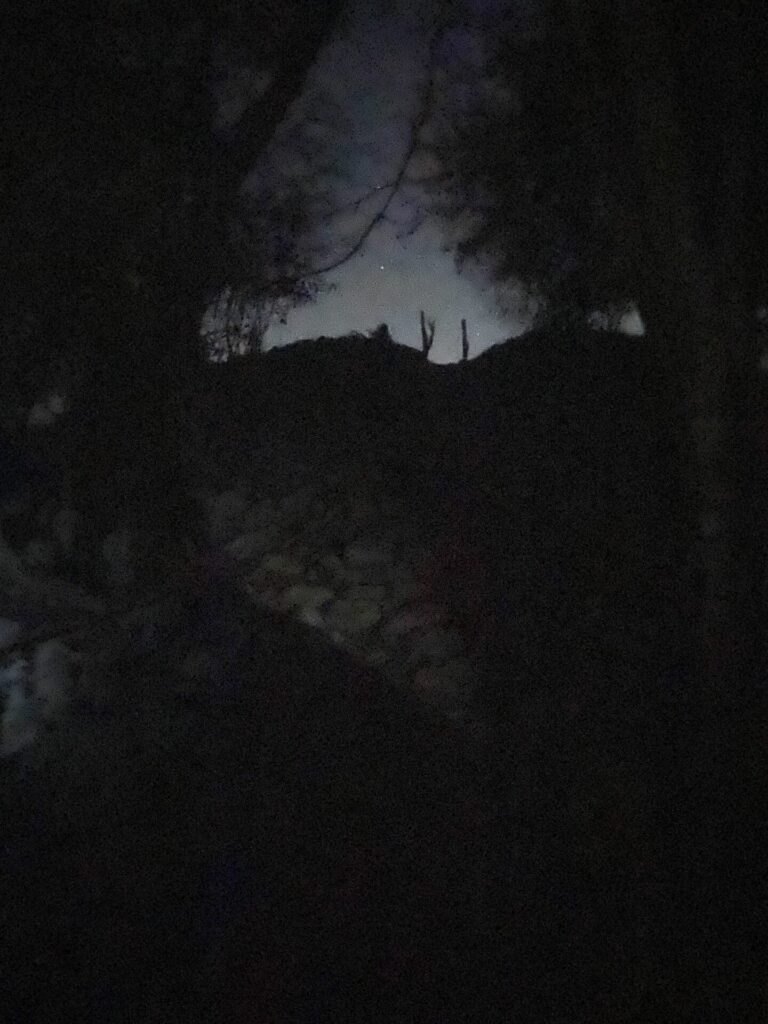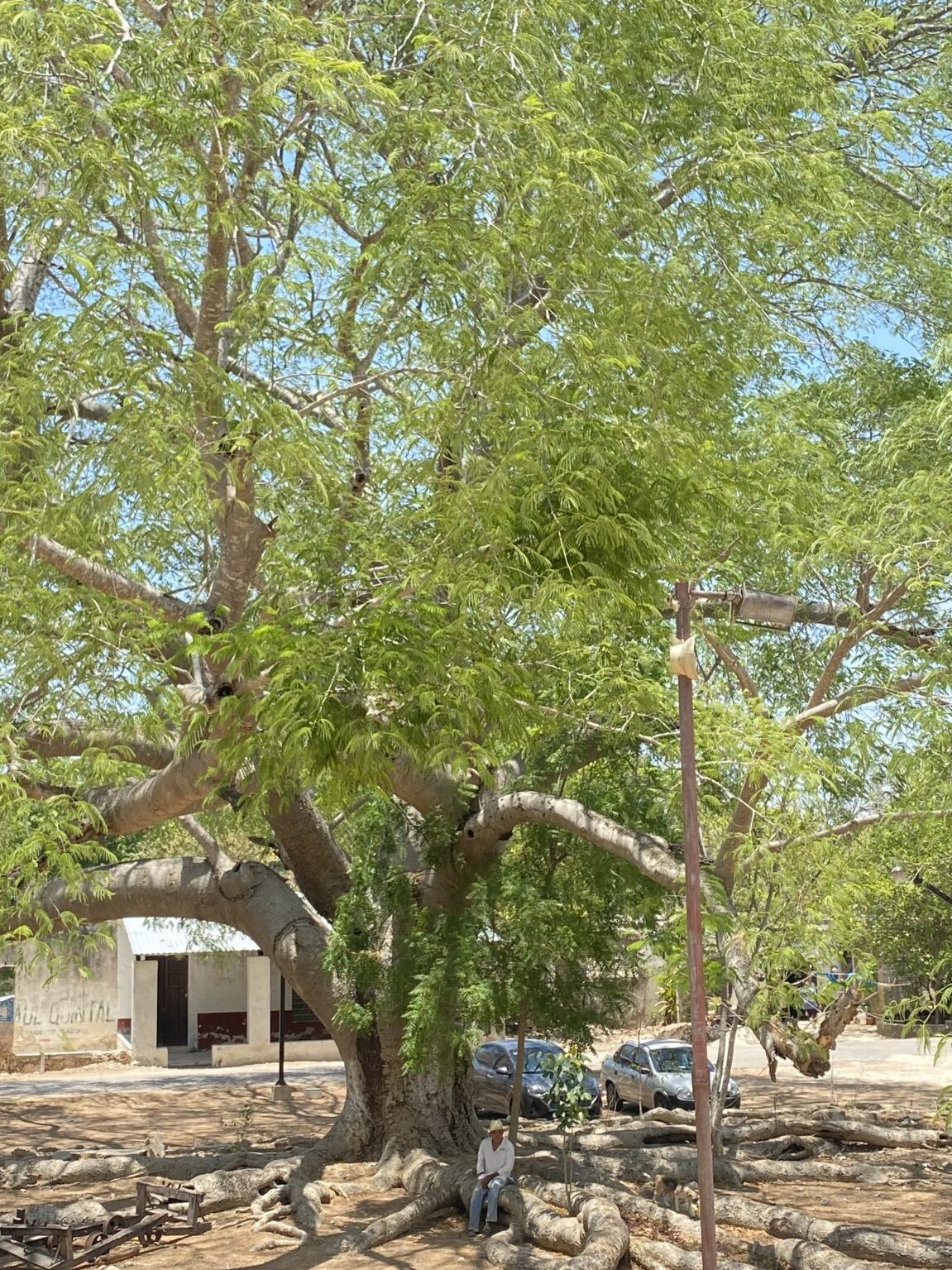Before coming to Mexico, many of my expectations came from the Americans I knew who visited as tourists. It was framed as a beautiful place with a rich and colorful culture. It was a vacation location. A place to drink, party and relax. My identity as both a tourist and student shaped my experience in a slightly varied way. I drank, I partied, I relaxed and I learned a lot, not only about the place and people, but about my own relationship with it. I was lucky to have the opportunity to see through many different eyes: the academic, tourist, student and local. It changed my perspective not only of Mexico, but of the way history is recorded and shared.
There is lost wisdom in indigenous history and oral tradition, not only in the Yucatan Peninsula but around the world. Much of this history and culture is intentionally erased, for the purpose of creating a place and culture more palatable to visitors. This practice has been to the detriment of not only the indigenous people of these places, but to our value systems and relationships to our own land.
For example, in The Celebrity Chef Lands in Yaxunah, the text we were given to read before our trip to Yaxunah, we learned about the glorification of sustainable agriculture. It tells the story of how the co-opting of the indigenous culture of Yaxunah has slowly degraded it. Ideally, our relationship to a place like Yaxunah would be a reciprocal one of sharing and learning. But because of the inherent power imbalance between those living in the Mayan pueblo and the ultra wealthy, cultural identity and practices are exploited for profit. Over time, there is less space for knowledge for knowledges sake, and the indigenous culture is slowly diluted. Their culture is catered to us, the wealthy westerners. We felt this in our identity of visitors in their village. Granted, our relationship with Yaxunah was more reciprocal than normal, signifying an effort to move in a positive direction, yet I still felt the imbalance of power. Our presence there was still constituted in many ways by an exchange of knowledge, experience, and money.
Living as a tourist in the wealthy down town district of Merida, the culture of Yucatan was marketed for our consumption. We experienced this daily. There seemed to be no way to really know what was “authentic” and what wasn’t. Our classroom discussions on what does and doesn’t qualify as “authentic” further complicated this question. But one thing seemed for certain, the version of Yucatan culture that was presented to us, was not the version that once existed for itself.
In a car ride from the beach, I was taught about Mayan theology from an Aztecan man named Marco. He told us that the Mayans believe in one God, and personified natural phenomenon’s. I learned that what was often presented to me as a polytheistic religion was, according to oral tradition, monotheistic. After learning that the Spanish Catholics used the polytheistic nature of Mayan theology as a justification of cultural erasure, it was alarming to hear this contradicting account.

Ancient Mayan history, culture, and theology is shrouded in doubt and contradiction. In Braiding Sweetgrass by Robin Wall Kimmer, she tells the Mayan story of creation. It is constituted by “…gratitude, and a capacity for reciprocity.” To me, this account of their theology further contradicted the common belief that the ancient Maya were a savage and brutal people. I can only imagine what the cultural impacts could have been if these indigenous knowledge systems were valued in the way they deserved. How would our value systems look different today, if our culture was based on relationships of reciprocity? How would this reflect in our behavior and beliefs?
Cannibal Tours is a great example of one of the many ways that power imbalances shapes, erases and recreates history. It was filmed in 1988 and follows a group of tourist traveling through Papa New Guinea. What I find so jarring about this film is how the presence of these tourists shapes the behavior and practices of the local peoples. They performed and marketed an incredibly personal culture, against their wishes, for outsiders. Today, this community looks much different than it does today, largely because of this economic dependence on a tourist economy.
I see a parallel between this film and our visit to the Peon Hacienda. The dependence the hacienda has on tourism has shaped and recreated the history and culture they present to visitors. This was obvious and even stated by our tour guide. He commented that the machinery and products they were showing us are no longer marketable, and the only way to continue operation is to depend on tourism for profit. In order to preserve this hacienda, they are forced to market a version of their history that is not all based in truth. After learning a bit about the history of Hacienda’s, we got a glimpse into the lost history of the Mayan women and working men and women, but in visiting a hacienda, I was struck by the way working conditions were presented, and the complete lack of any acknowledgment of the exploitation associated with haciendas.

I have learned about the atrocities inflicted on the indigenous people of North America and how it resulted in lost culture, history, and wisdom. In Yucatan, I had the opportunity to trace a sort of chain of cause and effect, which has yielded this same result. It was eye opening to trace this history of oppression, and simultaneously be experiencing the lingering effects. There are many contradictions within history, and I am not sure that there will ever not be. But this trip has only granted me greater clarity on the sources and causes of these contradictions, and an overall greater understanding of where history exists.